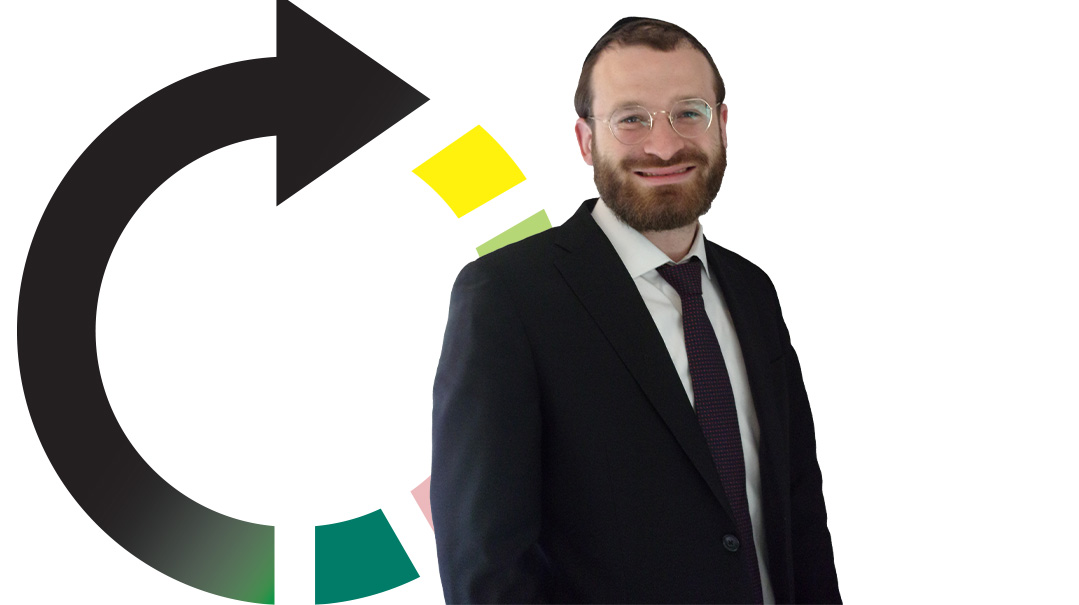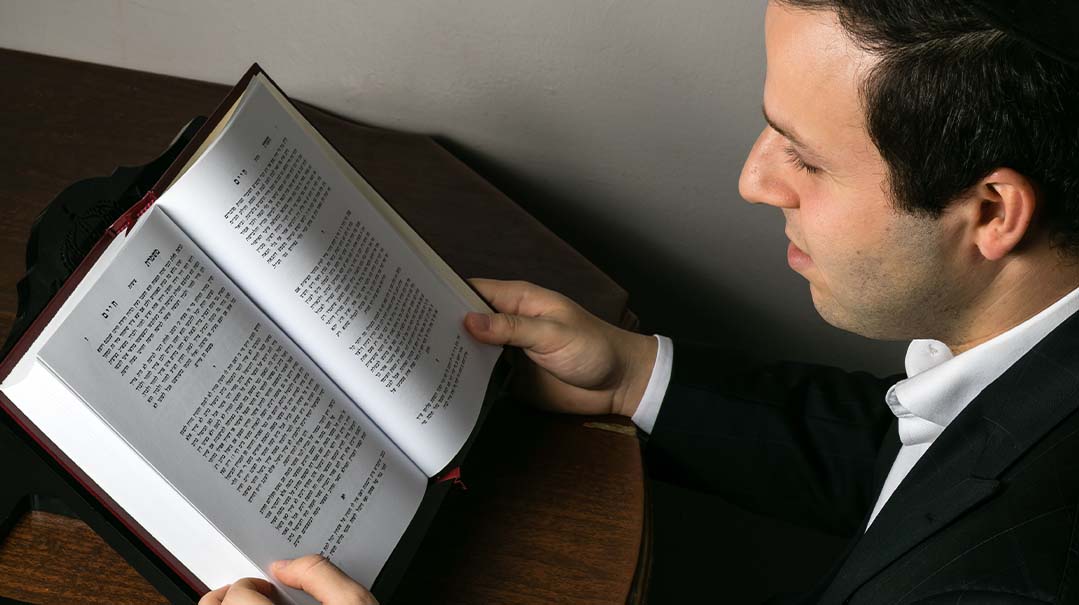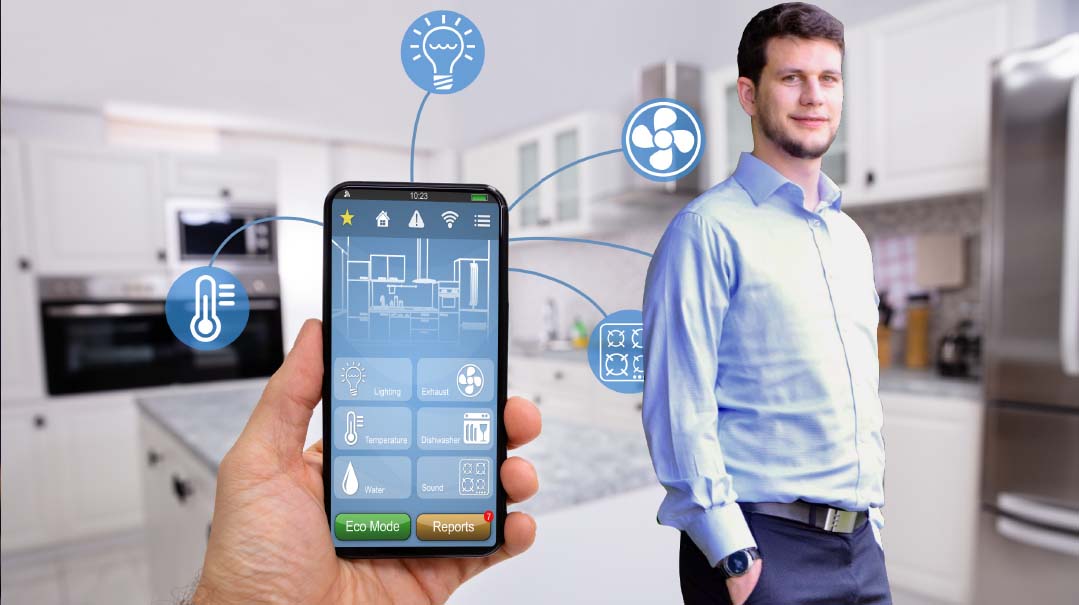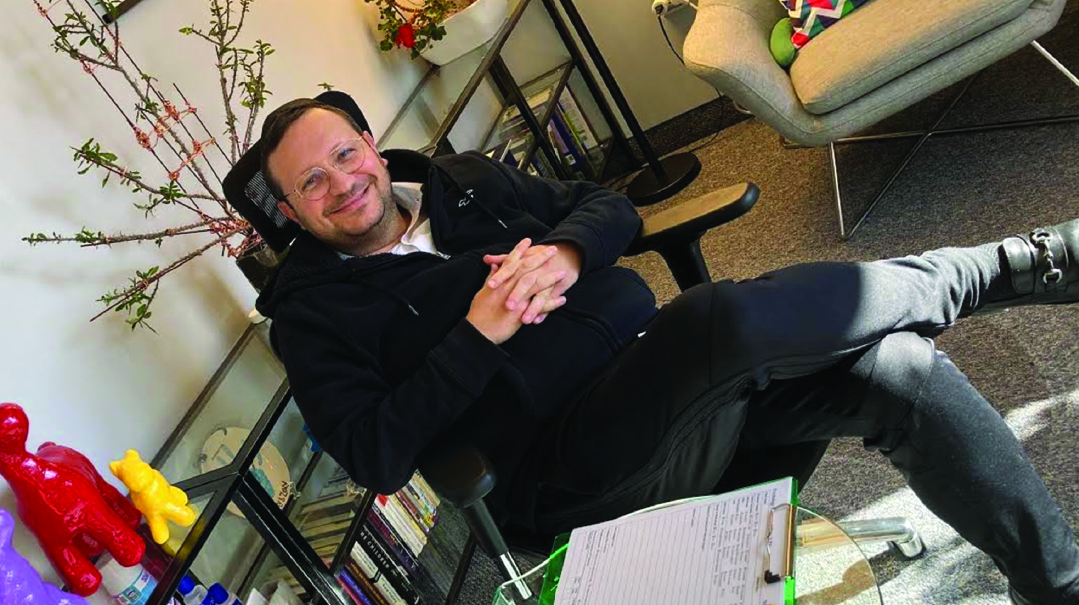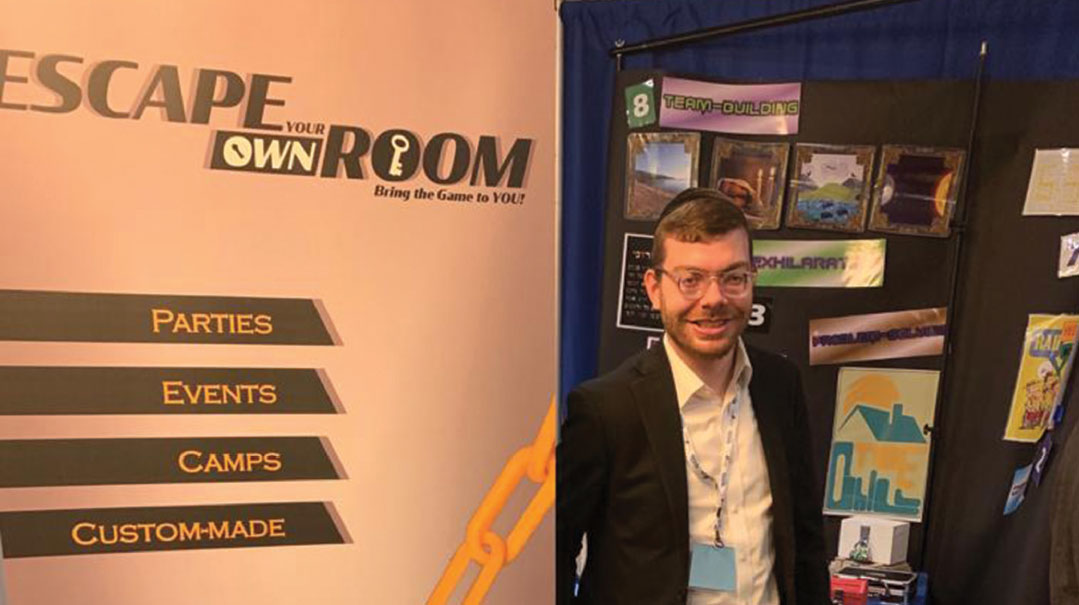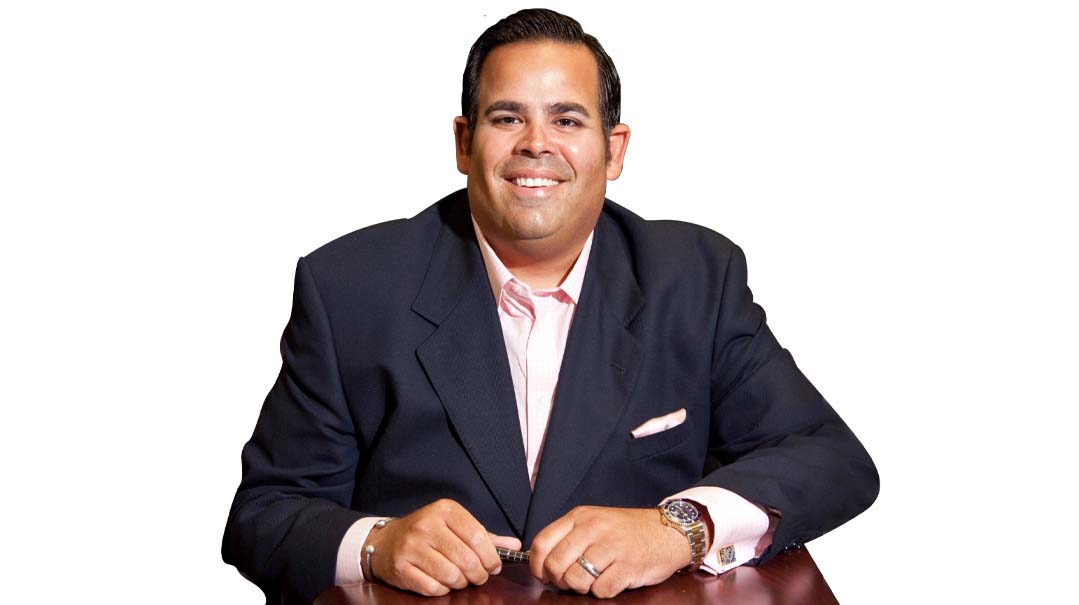Day in the Life of… Jonathan Heller

Jonathan Heller is the CEO of MikvaTech, a water purification company based in Jerusalem, where he lives
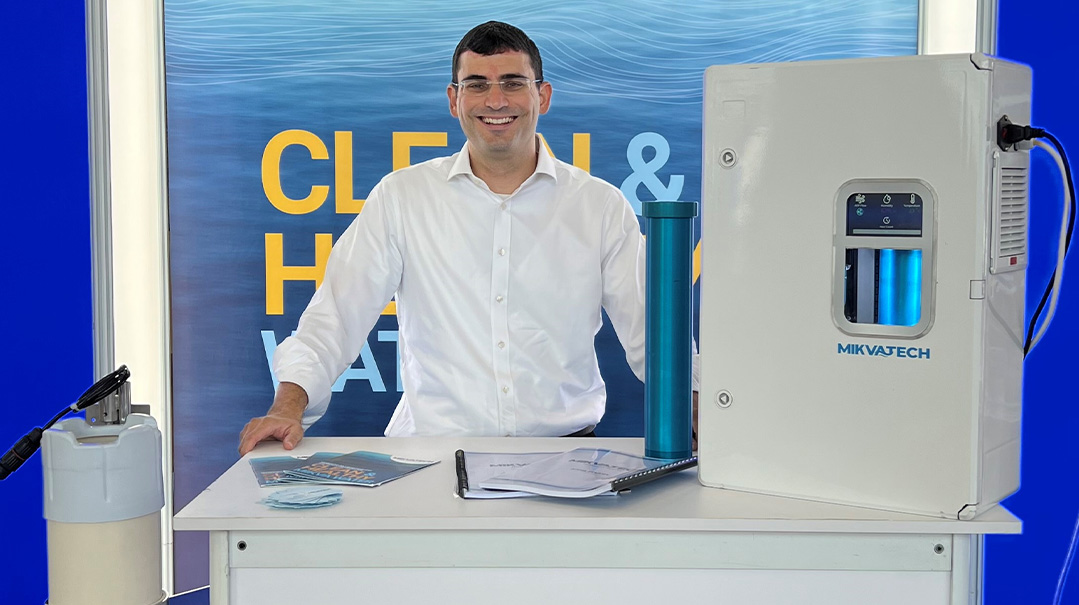
What I do: I develop technology that provides mikvaos with advanced water purification systems.
What that means: We offer a range of products — proprietary oxidation machines, skimmers, and filters — that provide comprehensive water treatment solutions for all types and sizes of mikvaos. We’re constantly researching and developing new and upgraded systems and tools. Our mission: to help every mikveh maintain clean and healthy water at the strictest halachic level.
My role: Because we’re a young start-up, it varies. Sometimes, I’m the face of the business, meeting mikveh contractors and designers. Other times I sit with our engineers regarding new product development, and I’m often busy with the daily grind of making sure everything operates smoothly.
How I got started
Initially, our company, Pool Purity, targeted the swimming pool and wetland markets. A few years ago, a friend sent me a study by the Hadassah-Hebrew University Medical Center about mikveh maintenance practices. I was disturbed by the study’s findings, and I realized that no one is developing anything for mikveh water treatment. There are extensive regulations and guidelines for swimming pools, but the mikveh market has almost no directive. I thought, taharas Yisrael is the foundation of Jewish life — every mikveh should be beautiful, clean, and healthy. I consulted at length with my rav, Rav Asher Weiss shlita, and with his go-ahead, I pivoted to focus on this important need.
Initial feedback
People looked at me like I was crazy! The largest and most prestigious infinity swimming pool was using Pool Purity technology, and here we were, pivoting to this unheard-of archaic ritual-bath market. But with my new elevated mission, we started taking Pool Purity products and technologies and seeing how we could adapt them and develop new solutions for mikvaos.
The difference between mikveh and pool purification (halachah aside)
Practically speaking, the main difference is the location of the treatment. In a public pool, filters, chlorinators, and other systems treat the water when it’s in the machine room, which is connected to the pool but in a totally separate area; treating water in the pool can be dangerous to swimmers. However, the water in most mikvaos never leaves the bor tevilah, so it needs to be treated directly in the bor tevilah. This is considerably more challenging — especially on Erev Shabbos or Erev Yamim Noraim, when most mikvaos see a huge increase in the ratio of bathers per gallon of water. Because you need to treat the body of water directly, often while toivlim are in the water as it’s being treated, the process has to be much safer than in other public water treatment processes. This is why our oxidation machine had to undergo two and a half years of testing and piloting with Israel’s Ministry of Health before it was approved for mikveh use; to date, it is the only oxidation machine with their approval for use in mikvaos.
Our clientele
Many mikvaos in Eretz Yisrael are operated by the municipalities. The largest municipalities here — Yerushalayim, Bnei Brak, Beit Shemesh, and Beitar — use our system, as do smaller ones like Rechovot and Petach Tikvah. Yerushalayim alone has close to 200 of our machines throughout the municipal mikvaos! Many chassidishe mikvaos, which are privately owned, also use it — the Belz headquarters in Yerushalayim, Vizhnitz, Boyan — and the Badatz Eidah Hachareidit geirus mikveh in Yerushalayim. We also have hundreds of mikvaos around the world, including in remote places like Bangkok, Thailand, Montevideo, Uruguay, and Accra, Ghana. We have in the US, as well, and we’re actually planning to open a US fulfillment center to properly provide for mikvaos there.
Sh’eilos we’ve asked
As a rule, we never pasken for specific mikvaos. We carry different products at various levels of hiddurim, and there are many shitos, so our fundamental guideline is that every mara d’asra should be involved as much as possible when discussing which system is appropriate for that community’s mikveh. At our end, it’s more of a constant conversation about how to develop our products in a way that conforms to and enhances halachah. Our engineers consult with a large network of rabbanim on an almost weekly basis, discussing things like the concern of mayim sheuvin and how to ensure that any machine we place in the water doesn’t have a beis kibul. We once calculated that our system used in the Badatz Eidah Hachareidit mikveh had undergone over 30 (!) design variations to get it to something they were satisfied with.
Where we get ideas from
We recently introduced fixed filters with underwater motors that are more mehudar than the older external ones. The way this came about was a big mussar lesson for me: I was approached by a tremendous talmid chacham in Yerushalayim who opened a private mikveh and was annoyed there were no filters with hashakah — a direct connection of the water throughout the filter body and the surrounding mikveh water — throughout the entire filter. We were busy with other projects, I didn’t want to focus on it at the time, so I shrugged it off. Our CTO Yishai happened to consult with this rav on a different MikvaTech project, and of course, the rav asked him about why we don’t offer a filter with this hiddur. Yishai bounced a few design ideas off him, and he realized that not only could we develop it, but the new design would actually be substantially more efficient and effective — and we could introduce a built-in disinfection system within the filter itself, making it substantially healthier for toivlim. The filter I had initially dismissed is now an integral part of our water treatment system.
It goes both ways
Recently, a mikveh operator called to order one of our products, but a member of our team noted that his area’s demographic would probably prefer a more mehudar product. I spoke with the local rav, and it became apparent that the operator hadn’t even consulted with him before placing the order! In the end, after lengthy discussions with both the rav and the operator, we were able to provide them with the appropriate product for their community.
Tips for optimal mikveh operation
- Always monitor the filtration and chemical levels.
- The filter should be sized appropriately for the mikveh and the number of daily users. It should be cleaned or replaced more often in busy times.
- Monitor chemical levels often and dose as needed, using the appropriate disinfectant for your size and type of mikveh.
- Don’t forget to disinfect the otzaros, the reservoirs, as necessary.
- Chlorine must never drop below 1.5 parts per million (ppm), and pH should never go above 8, especially before Yamim Noraim in busy mikvaos. (Israel’s Ministry of Health maintains that the bor tevilah’s disinfectant levels should always be between 1.5 to 3 ppm of chlorine, or 3 to 6 ppm of bromine, and the pH between 7 and 8.)
Most meaningful feedback
A few years ago, a couple in an irreligious moshav became religious and decided to build a mikveh in their basement. Most residents were vehemently opposed to this, and they actually hung a sign in front of the couple’s house: “This moshav is irreligious; not for religious people.” This couple was undeterred, and they built a mikveh anyway, intended for one user per week. But alas, when they filled up the mikveh with rainwater from the otzar, it was a ghastly green, totally unusable — and I received the frantic call at 11 p.m.
We sent a large system to treat the water, and baruch Hashem, within 24 hours, it was crystal clear. Two years later, one of the rabbanim who was involved called about replacing a component. He told me that even though it was built with just one user per week in mind, it now had a few users every night from the moshav! It is phenomenally challenging to build and operate a business, but moments like this make it all worth it.
Trial run
Rav Chaim Kanievsky ztz”l sat with us to understand how our oxidation works before giving a haskamah. He even insisted on testing the oxidation machine in a bucket of water on his table!
Our biggest difficulty
Over the past year, a few extremists waged war against our technology. It got pretty scary — they physically attacked the Badatz Eidah Hachareidit mikveh posek as well as people on their way to the mikveh, and I personally received death threats. The culmination was that Rav Moshe Shternbuch, the head of the Badatz, signed a haskamah for the MikvaTech machine they were opposing. Incidentally, this is the first time he ever signed a haskamah for anything mikveh-related.
What I was up to in:
2014 I got certified as a swimming pool operator by the National Swimming Pool Foundation in the US, and three years later, as a water sampler by Israel’s Ministry of Health.
2017 My friend Tomer Levy and I started Pool Purity, a pool water purification company. Pools traditionally use chemicals to disinfect the water, but recently, there’s been a growing awareness of this method’s toxic byproducts. Most swimmers know what that feels like — itchy eyes, a chlorine odor, sometimes even skin or respiratory irritations. Israel is a leader in water treatment technology, and in September, we received funding from the Israeli Governmental Innovation Authority to develop an alternative chemical-free disinfection technology.
2018 Our team of environmental and water engineers from the Technion and Tel Aviv University developed an oxidation technology that kills bacteria, pathogens, and viruses, as well as degrading dissolved organic matter. This became the basis of our pool purification technology.
2019 The world’s largest and most prestigious infinity pool, the Marina Bay Sands SkyPark pool in Singapore, purchased our oxidation systems. Our system is also used by municipal ponds and swimming pools all over Israel, including Rabin Square, the central square of Tel Aviv, and Gav Yam industrial high-tech park in Be’er Sheva.
2020 We rebranded and changed the name of our company to MikvaTech Pool Purity Ltd. as we transitioned and mikvaos became our primary focus. (When servicing chassidishe mikvaos, we function under the brand name Mikva Rein, “pure,” in Yiddish.)
2021 Forbes Israel magazine named MikvaTech one of this year’s “Small Giants” (small companies that make giant changes in Israel). We were also chosen to conduct the mikveh operator training course on behalf of Israel’s Ministry of Religious Services at Ariel University in the Shomron.
2022 We’re developing sensors that notify mikvaos when filters need to be cleaned or cartridges replaced, and we’re producing water-quality monitors with remote system control. We also have a “smart” maintenance system in the works that will treat water before it becomes contaminated, based on the principle that it’s easier to maintain clean water than it is to clean contaminated water. We’re a small company, but a huge percentage of our resources goes into research and development.
(Originally featured in Mishpacha, Issue 929)
Oops! We could not locate your form.

